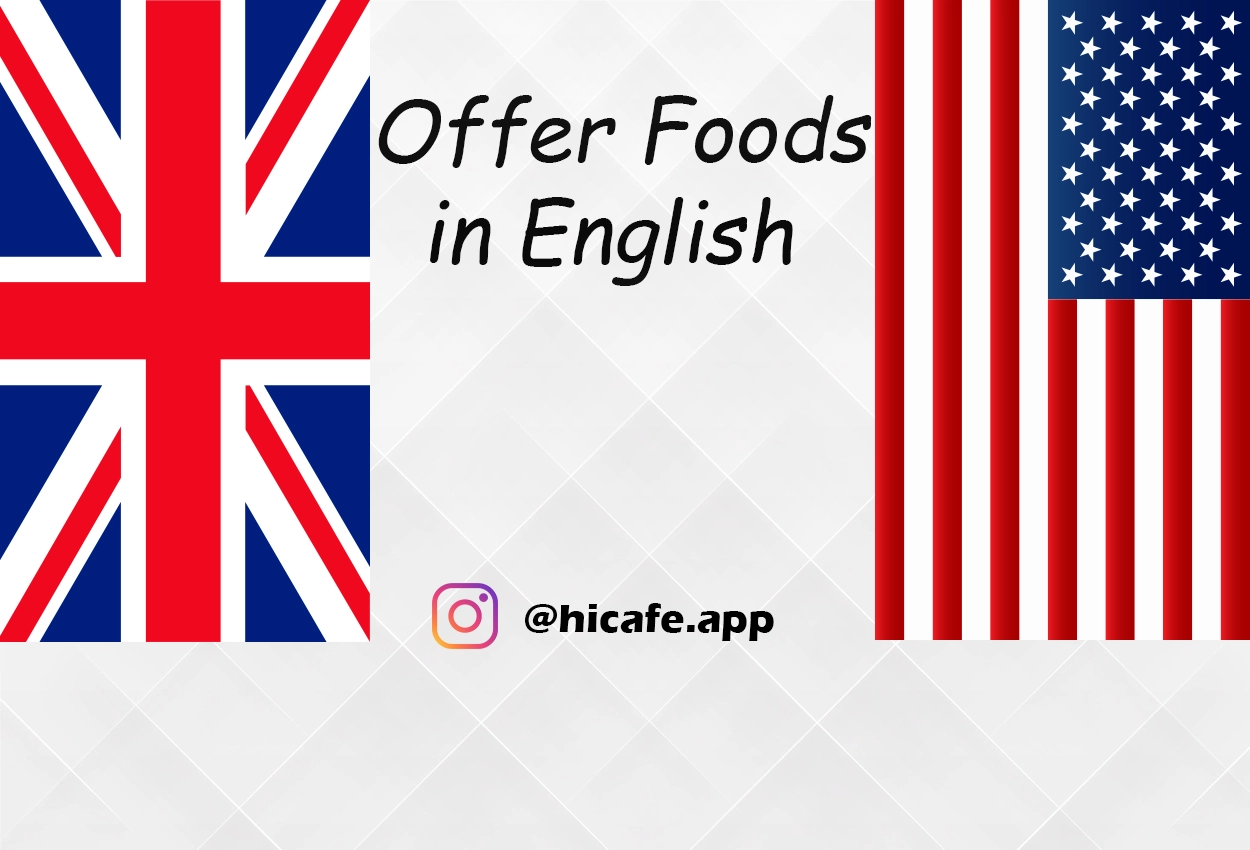
Whether you’re hosting a dinner party or enjoying a meal out, knowing how to offer food and drink politely is key to a smooth and enjoyable experience. This lesson will equip you with essential phrases and grammar rules to offering food in English.
Previous Conversation Tip Lesson
How to Express Happiness in Words to Someone
How to offer food in English
Here are some useful speaking phrases and grammar rules to help you.
Offering, accepting and refusing food and drink
Click here to practice this conversation tip in Instagram.
- Would you like some more?
- Would you like another (potato)?
- Can I get you some more wine?
- Have you got enough (meat)?
Examples for accepting
Click here to practice this conversation tip in Instagram.
- Would you like some more yogurt?
Yes, please! I love this yogurt.
- Can I get you some more beer?
Yes, please. I’ll have another glass.
- Would you like another apple?
Oh, yes, please! They’re delicious!
Examples for refusing
Click here to practice this conversation tip in Instagram.
- Can I get you some more beer?
No, thanks. I think I’ve had enough.
- Would you like some more chicken?
No, thank you. I’m quite full.
- Have you got enough soup?
Yes, thank you. I’m good for now.
- More French fries?
No, I’m okay for now.
- Would you like some pizza?
Oh no, thanks. I’m too full for pizza.
(full = my stomach is full)
- Do you have room for seconds?
No, thank you. I’m already quite full.
(room for = space in your stomach)
(seconds = another plate of food)
Using enough
Click here to practice this conversation tip in Instagram.
enough = the right quantity
- Do you have enough money for the plane journey?
No, I don’t have enough. I only have £1.
“Enough” comes before a plural countable noun, or an uncountable noun.
- She hasn’t got enough potatoes on her plate.
- He hasn’t got enough money.
You don’t always need the noun:
- Have you got enough?
Yes, I have / No, I haven’t.
You can also follow it with a verb:
- He didn’t even earn enough to pay the rent.
Using too
Click here to practice this conversation tip in Instagram.
We use “too”, “too much” and “too many” to say the quantity is big – we don’t need it all.
- There’s too much food on this plate, I can’t possibly finish it all.
- I’ve eaten too many sweets today, I need to stop!
We use “too” before an adjective:
- It’s too hot to wear a jacket today.
- He’s too excited to sit still.
We use “too much” before an uncountable noun:
- There’s too much pepper on this salad, it’s too spicy!
We use “too many” before a plural countable noun:
- There are too many dishes to choose from on the menu, I can’t decide!
Using some and any
Click here to practice this conversation tip in Instagram.
- Would you like some more tea?
Yes, please. I’d like some more tea.
- Would you like any more cake?
Yes please. I’d like some (more).
No thank you. I don’t want any (more).
In questions we can use some and any when we offer something. With “some” the quantity is more restricted than with “any”, but there isn’t a big difference.
If we accept, we can use “some” in the reply, but if we refuse, we can use “any” in the reply or just say “no thank you”.
Giving someone a choice
Click here to practice this conversation tip in Instagram.
- Would you like some pasta or pizza?
Either please!
(= It doesn’t matter to me.)
- Would you like some pasta or pizza?
Both please!
(= I’d like pasta and pizza.)
“Either…or” is a choice:
- Would you like either pasta or pizza?
Oh, the pizza please.
Other polite phrases at dinner
- That was lovely, thanks.
- This is wonderful!
- How did you make this?
- What did you put in … (the sauce)?
Essential English utensils vocabulary
- plate = what you eat meat, etc off
- bowl = where you put (liquid) soup, cereal, etc
- knife = what you use to cut food (pronounced “n-eye-f”)
- fork = what you hold in your left hand to carry food to your mouth
- spoon = what you use to eat soup or dessert
- glass = what you drink wine or water from
- cup = what you drink coffee or tea from
- teaspoon = small spoon for sugar
- napkin / serviette = small piece of material you put on your knees
- tablecloth = material to cover the table
Conclusion
Whether you are hosting a dinner party or attending one, mastering the art of offering, accepting, and refusing food and drink makes your dining experiences more enjoyable and harmonious.
Next Conversation Tip Lesson
Conversation in Restaurant in English
Related Conversation Lessons
None
Practice Conversation with HiCafe App
By using HiCafe App, you can join free discussion events and Practice English Conversation online or in-person and improve your verbal skills.
All Conversation Lessons
To see and read all of our conversation lessons, you can visit our Improve English Speaking Skills page.


